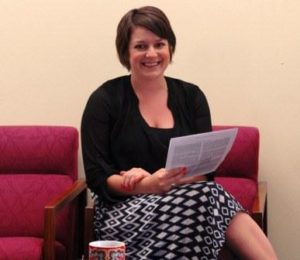
As Year 12 begins for thousands of South Australian students, a new Flinders University study shows teens who can’t fall asleep at night are mainly worrying about the fallout of sleeping in and missing out on school.
The report, which has just been published in the international journal Sleep Medicine, found that “catastrophising” about school work, academic performance and social relationships at school are associated with pre-sleep anxiety, which in turn, is associated with poorer sleep.
Catastrophising is a repetitive cognitive process resulting in thoughts of catastrophic consequences, and has been related to increased sleep disturbances in community samples of children and adolescents.
As part of the research, 40 teenagers with delayed sleep phase disorder (DSPD) – a biological delay of the natural body clock which causes the individual to have significant trouble falling asleep and waking at appropriate times – were asked to keep a seven-day sleep journal, and were also interviewed by a trained sleep specialist and assessed for measures of anxiety and depression.
Flinders Child and Adolescent Sleep Clinic therapist Rachel Hiller said the aim of the study was to explore the role of dysfunctional thinking, anxiety and the amount of time it takes to fall asleep, in DSPD, and to determine the most common catastrophic themes in the sample of teenagers.
“In DSPD we often see a secondary insomnia-type presentation where the teen has difficulty “switching off” their brain,” Ms Hiller, based in the School of Psychology, said.
“Many of the teens we see with DSPD go to bed because their parents tell them to (or they think they have to, to wake up on time for school) but then end up lying awake for hours because their body clock simply isn’t ready to fall asleep,” she said.
“As a consequence, a lot of these teens have significant issues with school non-attendance – if they do force themselves out of bed it can impact their concentration and grades so we wanted to know what they are thinking about while they’re lying in bed, and how this might be keeping them awake even longer.”
Ms Hiller said 70 per cent of the participants were catastrophising about school, leading to increased anxiety and difficulty falling asleep, which in turn may exacerbate their disorder.
“The majority of the teens were catastrophising about the consequences of not going to school, whether it be missing out on important school work, missing out on friendships or getting in trouble with teachers.
“A common theme was if I can’t get to sleep I will fail school, then I won’t be able to go to university and my life will be ruined.
“In terms of anxiety, a lot of the teens were worrying about what happened during the day or what they had to do tomorrow which, again, was often school related.
“The ones who catastrophised the most had higher rates of anxiety and therefore took longer to fall asleep.”
Ms Hiller said the study was the first of its kind to investigate the factors potentially impacting sleep in teens with DSPD, “even though it’s quite a common disorder and can have significant implications for a person’s daily functioning”.
She said the findings provided a clinical framework for health professionals when assessing and treating adolescents with delayed sleep timing.
“As DSPD is a body clock delay the first course of treatment is to shift the body clock with light therapy or melatonin, but it’s still important to treat any residual insomnia symptoms, such as worry or catastrophising.
“What this research shows us is that the catastrophic themes and anxiety may play an important role in maintaining the sleep disorder, and could be targeted through cognitive therapy, which may provide an effective additional treatment option.”
Ms Hiller’s research has just received one of Flinders University’s Best Student Research Paper Awards, an annual initiative to recognise, reward and promote outstanding student research.

